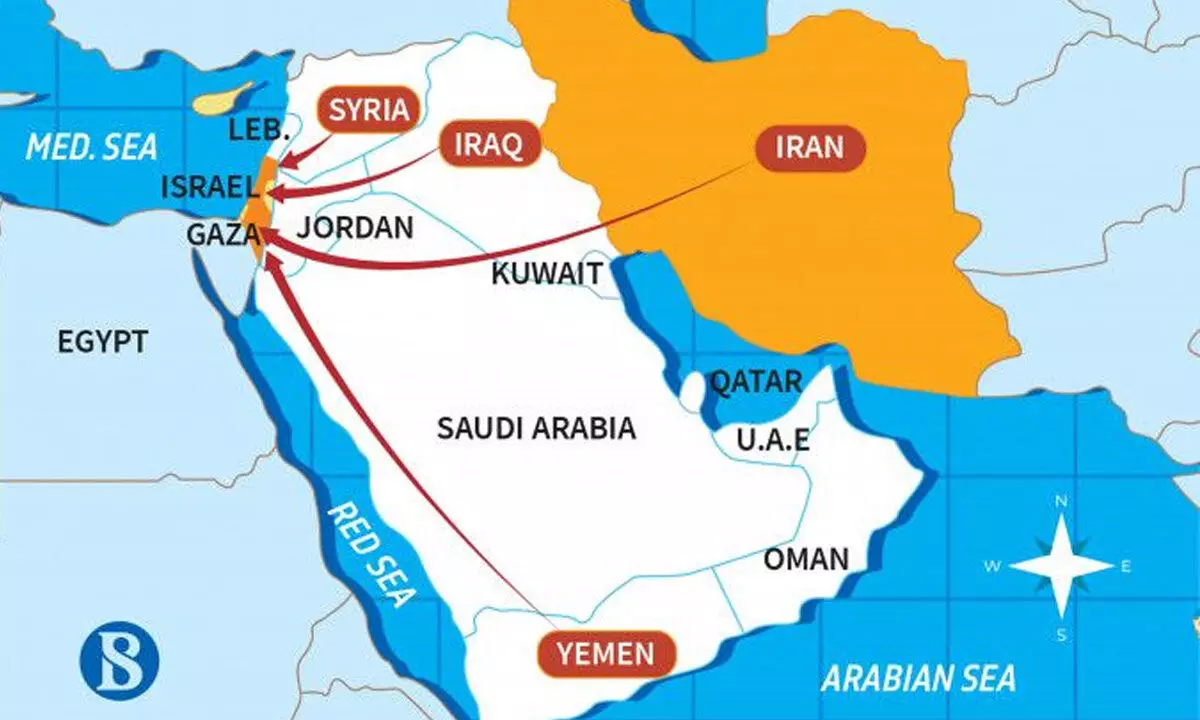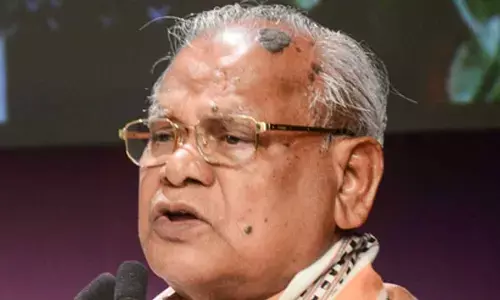What Iran sought by attacking Israel

Iran’s image has been further enhanced by the fact it is the only Muslim state to attack Israel against the backdrop of public outrage over the war in Gaza.
Iran’s image has been further enhanced by the fact it is the only Muslim state to attack Israel against the backdrop of public outrage over the war in Gaza.
The Iranian missile and drone attack on Israel on April 13 was calibrated to achieve two key objectives.
First, Iran’s leaders sought to preserve the country’s image as the self-appointed head of the “axis of resistance”, comprised of its proxies in the region – Hezbollah in Lebanon, the Houthis in Yemen and other militia groups in Iraq and Syria.
Iran also wanted to demonstrate the effectiveness of its deterrence model, which is based on the threat of retaliation against Israeli aggression through its proxy actors and expanding missile and drone technology.
Coming two weeks after the Israeli attack on its diplomatic mission in Damascus, Iran could not afford to outsource its response to its proxies. While Iran was clearly not ready to start a war with Israel, not responding in-kind to the Israeli attack would have made it look weak and seriously diminished its standing among its allies and proxy groups.
But Iran’s leaders sought to minimise the damage and mitigate the risk of escalation by warning Israel of its attack in advance through intermediaries. This way, Iran could save face without getting embroiled in an all-out war. Iran’s second objective was to demonstrate to the world that it has the drone and missile technology to hit back at Israel, if it chooses.
For more than a decade, Iran has showcased its missiles during annual military parades to support its claim it can hit Israel if threatened. Its attack last month involved more than 300 drones and missiles. Notwithstanding the fact the damage was minimal, the attack was proof Iran now has the capacity to inflict pain on Israel.
Israel’s limited response to Iran suggests that war has been averted, much to the relief of neighbouring countries. But the long-term implications are more favourable for Iran. This show of strength has likely helped its rejectionist foreign policy find receptive ears in the Muslim world and beyond.
When Iranian President Ebrahim Raisi visited Pakistan on April 23, for example, he was greeted like a celebrity. This was ironic as, earlier this year, Iran and Pakistan had engaged in tit-for-tat aerial attacks. The two countries agreed to boost bilateral trade to US$10 billion (A$15 billion) a year, about five times the current level. They also released a joint statement calling on the UN Security Council to take action against Israel, saying it had “illegally” targeted neighbouring countries and foreign diplomatic compounds.
Chinese Foreign Minister Wang Yi also offered a message of support to Iran, saying: China noted Iran’s statement that its action was restrained and was an act of self-defence in response to the attack on its embassy.
What this could mean for the region.
The implications of a more emboldened Iran for the region are severe. The Iranian authorities feel vindicated by the events of the last seven months. This means their anti-US and anti-Israel rhetoric will remain staunch as ever.
Iran’s drone and missile research and development program is also likely to receive a boost. And Iran’s support for its network of proxies and allies will remain firmly in place, as this enables the Iranian leadership to project power beyond its borders and retain its deterrence capability.
None of this bodes well for Iran’s neighbours. An ideologically energised Islamic regime in Iran would be less accommodating to regional concerns, particularly those aired by governments that have already normalised relations with Israel (such as the United Arab Emirates and Bahrain), or are believed to be heading in that direction (Saudi Arabia).
Moreover, the political credibility of many Arab leaders has suffered in the eyes of their citizens due to their perceived ineffectiveness in supporting the Palestinians in Gaza.
Iran’s leaders did not plan the series of events that started with the Hamas attacks on Israel on October 7. In fact, they were just as surprised by Hamas’ actions as the Israeli intelligence agencies. But they are the obvious beneficiary of the turn of events.
The United States and Israel are gifting Iran and its message of defiance enormous appeal, well beyond the imagination of Iranian authorities.
(Writer is Convenor of the Middle East Studies Forum (MESF), and Acting Director the Alfred Deakin Institute for Citizenship and Globalisation, Deakin University; https://theconversation.com)




